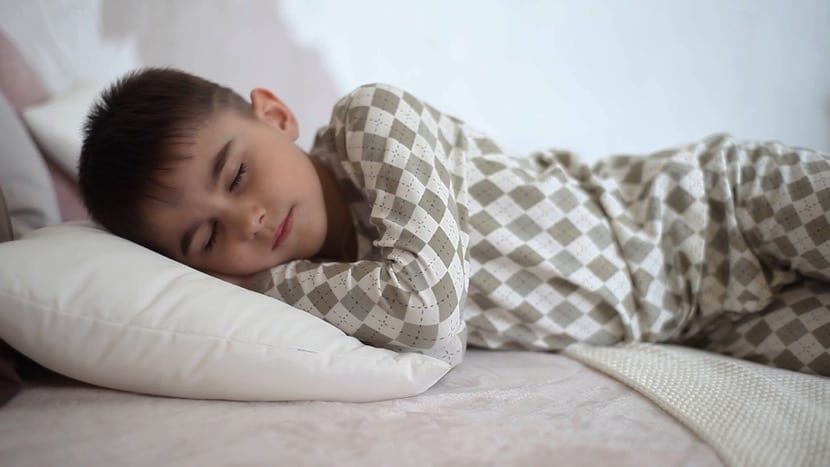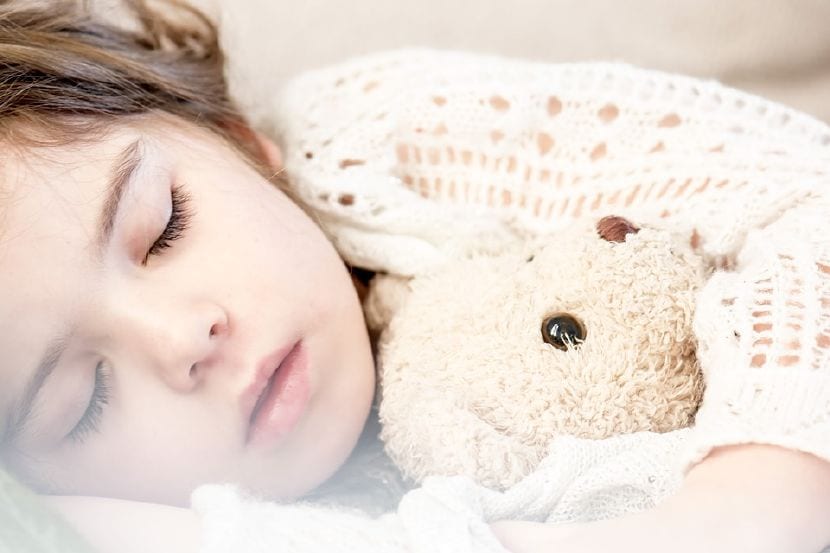
When a child does not get enough sleep it can cause other problems to exist the next day such as having an irritable emotional state most of the time. Tantrums or bad behavior is the most common in these cases. Sleep is essential for the health of children and also for family health. This is why establishing good sleep habits with your young child is so important, and the earlier you start, the better it will be for everyone.
There are many parents who do not realize that they allow bad habits in their children and even They encourage problems for your little ones to get a good night's sleep. When bad sleep habits develop it can be more difficult to make changes, although it is not impossible and when it is achieved, it is worth it. It will be easier for children and parents to have basic rules and routines that relate to sleep and thus avoid problems later.
Sleep Associations in Young Children
A sleep association is what your child connects to go to sleep, whether it's a teddy, you sing to him or you rock him. That is, it can be an object or an action. Children begin to establish sleep associations very early in their life, if your child gets used to falling asleep with a bottle or you sing to him to sleep, you will need that association every time you want to sleep.
Some sleep associations are healthy such as establishing a routine for bedtime, this way the body and mind are ready to rest. Parents can give their child a hot bath, put on pajamas, have dinner, brush their teeth, read a story together, turn off the lights, sing a song, and children already know that bedtime has come.
On the other hand, other sleep associations can create problems, if a young child needs to take a bottle to fall asleep, at first it may seem like a good thing, but later, it will not be a positive thing because it could cause cavities or take calories that they do not need. It may also be that lying down in your child's bedroom is the only way for him to stay calm and asleep and you have to wait for him to fall asleep. to be able to leave the bedroom, something that in the long run can cause stress for parents.

Parents should consider whether a sleep association is adversely affecting their child's sleep, that of another family member, or general family routines.
Negative associations in sleep
Solving bad sleep habits in children is not easy, but it is not impossible. Once it solves the child will be able to sleep well and all the members of the family will rest better. Before you start, you will have to make sure that all caregivers in the same household know what to do about the child's sleep situation.
Afterwards, the perception of who is in charge of this situation must be modified. Parents of young children often get trapped, especially when one parent gives in to tantrums or persistent misbehavior in order to achieve the negative association.
Although it sometimes seems impossible to control young children, parents need to establish limits and routines regarding sleep schedules. Parents fail their children when they are allowed to do what they want just because they have a tantrum ... they think they are solving the problem because a conflict is avoided but in reality, they are causing much greater conflicts in the future.
Fix negative associations in sleep
There are a few ways that parents can try to resolve negative sleep associations in their children. Next we are going to give you some tips so that you take it into account and can, from today, improve the sleep hygiene of the whole family:
- Have a sleep routine plan
- Establish a bedtime routine and make it a habit
- Keep the lights low and the voices quiet as bedtime rolls around
- Let your toddler choose a story, pajamas, and stuffed animal as part of the routine.
- Allowing children to make bedtime decisions, including what to wear and what rituals to follow, helps them feel more in control.

Getting a child to sleep alone
If a young child is reluctant to sleep alone, tell him that he has to stay in his bed and sleep… you have to tell him firmly. Once a parent has set an expectation, it is necessary to say good night and leave the room. If you don't know how to start doing this, follow these tips:
Maintain good communication. Your child may feel insecure or cry when you leave, but you have to verbally assure him that you are close and that he should stay in bed. If he gets up you will have to take him back and put him to bed. Do this without talking, arguing, or getting angry. Your child needs to hear a calm tone in your words and not tense his face or posture. I may put you to the test, if this happens, take him back to bed with all your love.

Stay calm but be persistent. If your toddler follows you out of the room, try sitting in the dream or on a chair in the room, being near the bed is soothing because your presence will make him feel better. Also if he gets out of bed it will be easier to put him back in his bed. Do not get on his bed or have him put on your lap once it is time to sleep. Just tell him that you will be there and that he must sleep in his bed. Don't talk to him, just wait for him to fall asleep. When he falls asleep, he leaves the room.
When teaching children to sleep alone, the first week will be the hardest. But, if done consistently, It should not take more than two to three weeks for the new sleep habit to be established.